
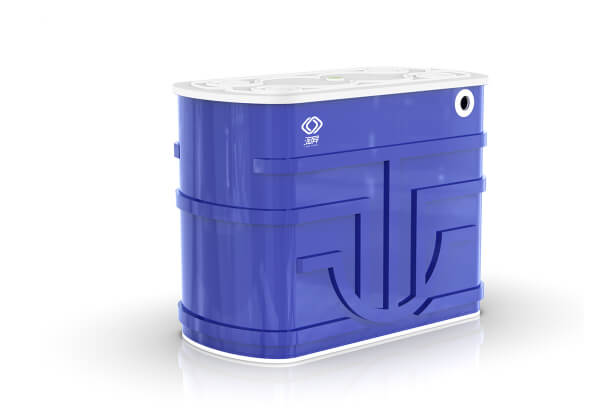
The Panda-Box bioreactor adopts the independently developed IFASMox(mud film Symbiotic ammox biological treatment technology) process, and uses silicon carbon particles as biological carrier in the main reaction space to achieve the cooperative symbiosis of anaerobic, aerobic and aerobic microorganisms and the synchronous removal of nitrogen and phosphorus by creating the gradient distribution of dissolved oxygen in the microenvironment. The equipment covers less than 50% of the international similar products, which greatly improves the wide practicability of the equipment in the narrow and complex environment and reduces the transportation and installation cost. Based on the self-developed Phoenix Nest intelligent monitoring system, the point inspection frequency is greatly reduced, the operation is simple, the effluent level B(A) is optional, and the problem of water pollution control in low and medium population density residential areas is solved in one stop.

Farmers

Farmhouses

Homestays

Villa areas

Public toilets

Border
guard posts

Sea pastures

Islands

High biological stability, strong impact load resistance, in extreme cases 6 months without sewage 3 days can be automatically restored; No need to add medicine, no discharge of organic sludge; Equipped with online sterilization and disinfection function.

The minimum equipment covers an area of \<0.9m, the installation is simple, the full open design, the operation and maintenance, the upgrade is convenient.

Design service life ≥30 years, the main body of the equipment is made of VI generation polymer material, small size, high strength, precision \<1mm, strong anti-corrosion performance.

Realize remote supervision, unattended, automatic operation, spot check frequency as low as 1 year/time, greatly reduce the spot check frequency.
After pretreatment by the septic tank, the domestic sewage flows into the equipment, first through the initial sedimentation tank and regulation tank, remove large particles of suspended matter and adjust the water quality and quantity, and then flow through the anoxic tank and aerobic tank for biochemical treatment, in the middle of the preliminary sludge water separation, sludge return to the aerobic tank, supernatant into the multistage contact oxidation tank, under the action of biphase biological carrier, Depth removal of organic matter, ammonia nitrogen, and the remaining sludge interception, decomposition; The ammonia oxidation tank underwent deep ammonia oxidation and phosphorus fixation under the adjustment of silicon carbon microparticle biological carrier and microenvironment; Finally, it is discharged or reused after ozone disinfection and sterilization.
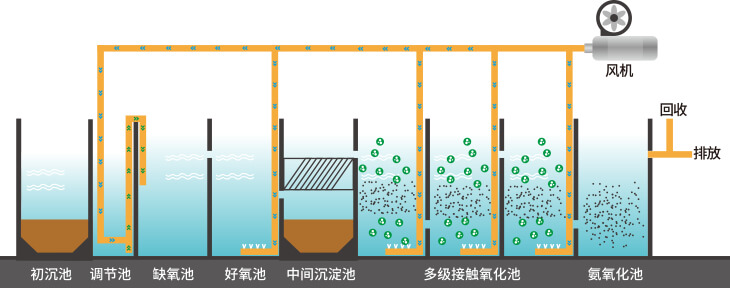
Panda-Box process schematic diagram
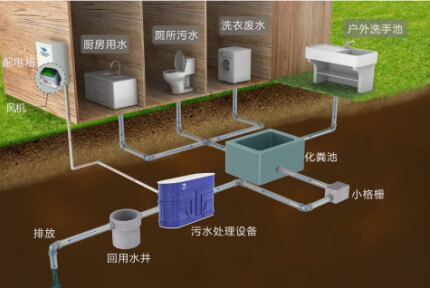
Schematic diagram of
Panda-Box installation

Note: Effluent standard "Pollutant Discharge Standard for Urban Sewage Treatment Plant" (GB18918-2002) Class B/A standard
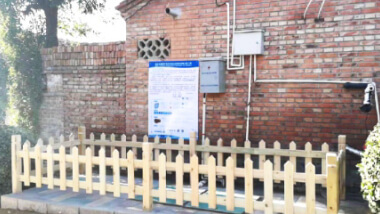
Rural sewage treatment demonstration project in Tongzhou district, Beijing

Fujian Longyan City rural sewage treatment project
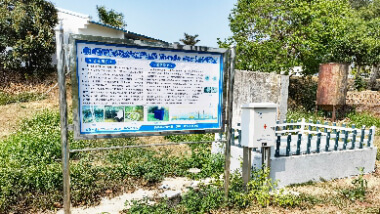
Shenzhen Park sewage treatment project, Guangdong Province
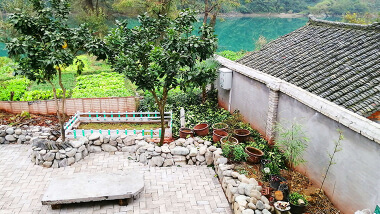
Hunan Xinhuang County provincial demonstration village sewage treatment project
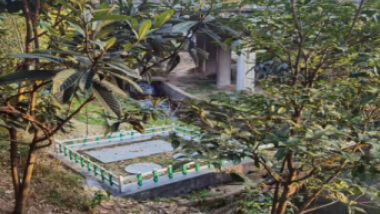
Jiangxi Leping City beautiful village sewage treatment project
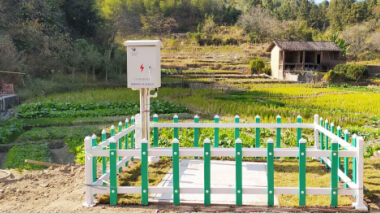
Xinhuang County, Hunan province, urban and rural environment comprehensive treatment of sewage treatment project

The Bee-Box bioreactor adopts IFAS-Mox (mud film Symbiotic ammonia oxidation biological treatment technology) technology, based on intelligent microbial population control technology, aims at standardization, modularization and intelligence, and relies on large-scale and automated means to achieve decentralized construction and operation and maintenance of domestic sewage. It is a high-efficiency, low-consumption, stable and durable sewage treatment reactor. The microbial immobilization rate is as high as 90%, which greatly enhances the load impact resistance of the microbial treatment system, and has the characteristics of low temperature resistance, impact resistance and hunger resistance. Based on the independent research and development of Phoenix Nest intelligent monitoring system, the point inspection frequency is greatly reduced, the operation is simple, the effluent level A, the surface quasi class IV, the surface quasi class III can be selected, one-stop solution to the problem of water pollution control.

Schools

Hospitals

Hotels

Residential areas

Parks

Urban villages

Temporary
construction sites

Military camps

Black and odorous
water bodies

River pollution
interception

High biological stability, strong impact load resistance, in extreme cases, 6 months without sewage can be automatically restored within 3 days; No need to add medicine, super nitrogen and phosphorus removal effect; Equipped with online strengthening sterilization and disinfection function.

The effluent can reach Grade A, surface quasi Class IV, quasi class water standards; The equipment covers a small area, the installation is simple, and can be installed on the ground/underground.

Designed service life ≥30 years, the main body of the equipment using weathering steel+ ship grade anticorrosive paint, high strength, strong anticorrosive performance.

Realize remote supervision, unattended, automatic operation, low spot check frequency .
After large suspended matter is removed through the grate, the domestic sewage flows to the regulating tank, and is pumped into the Bee-Box reactor by the lifting pump in the regulating tank. Then, it flows through the anoxic tank, anoxic tank and aerobic tank successively for biochemical treatment. The nitrification solution is returned from the aerobic zone to the anoxic zone for denitrification and nitrogen removal. The sludge water is separated again in the middle sedimentation tank, the sludge is returned to the anaerobic tank to supplement the biomass, the superliquant enters the multistage ammonia oxidation tank, and the deep ammonia oxidation and phosphorus fixation occur under the adjustment of silicon carbon micro-particle biological carrier and micro-environment, and finally the ultraviolet/odor disinfection and sterilization are discharged or reused according to the standard.
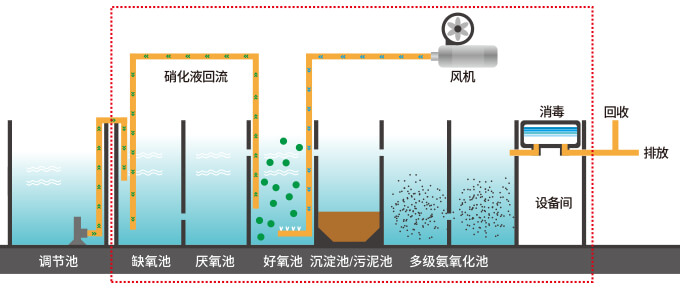
Bee-Box process schematic diagram
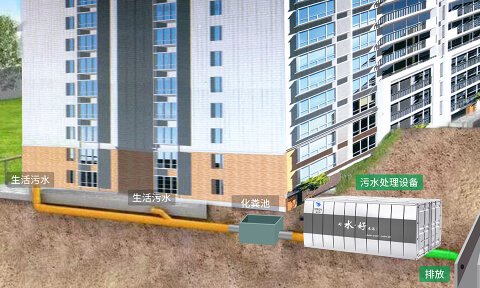
Schematic diagram of
Bee-Box installation
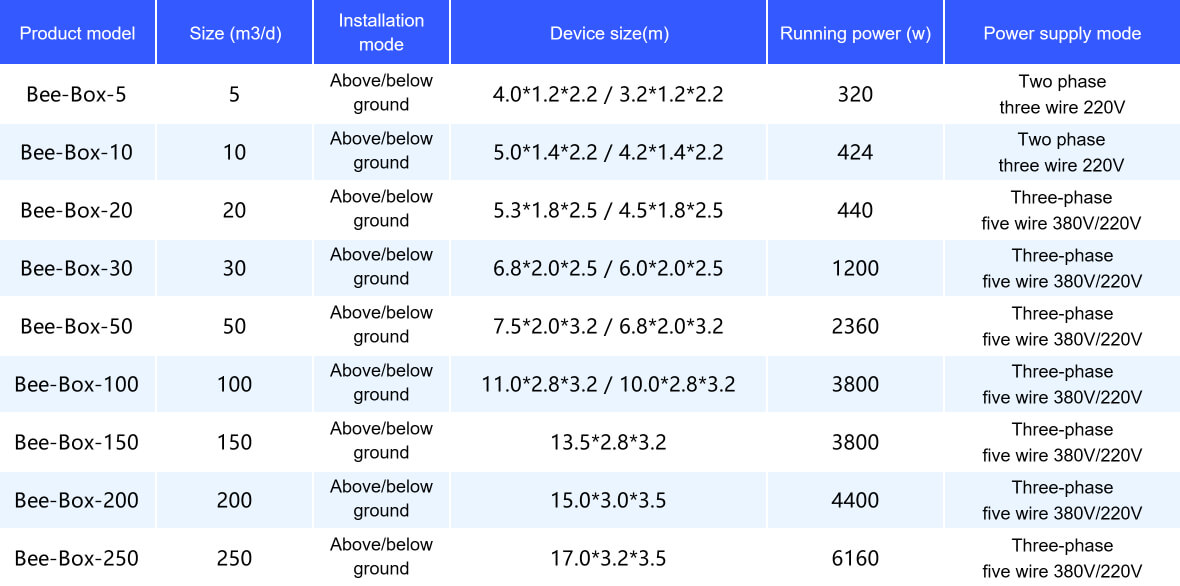
Note: Effluent standard "Pollutant Discharge Standard for Urban Sewage Treatment Plant" (GB18918-2002) Grade A, surface quasi Class IV, quasi Class I water standard
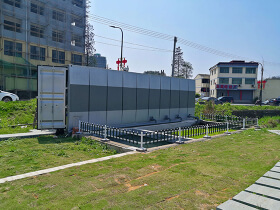
Zhejiang Yongkang City market mixed flow sewage treatment project
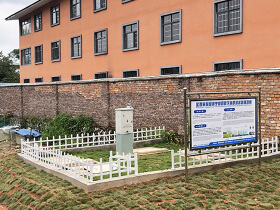
Ningdu County, Jiangxi school sewage treatment project
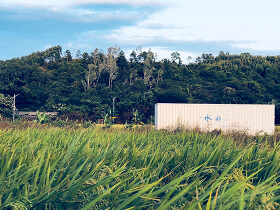
Shenzhen Shenzhen-Shantou Cooperation Zone rural sewage treatment project
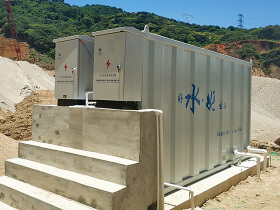
Pingshan temporary construction site sewage treatment project, Shenzhen, Guangdong

Xinyu City, Jiangxi residential district sewage treatment project
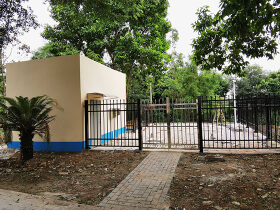
Guigang City, Guangxi river sewage treatment project

Jiangxi Ningdu County hotel sewage treatment project
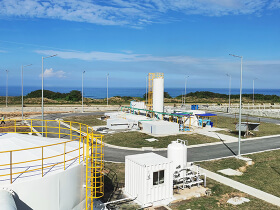
Cuba tobacco factory domestic sewage and production wastewater treatment project